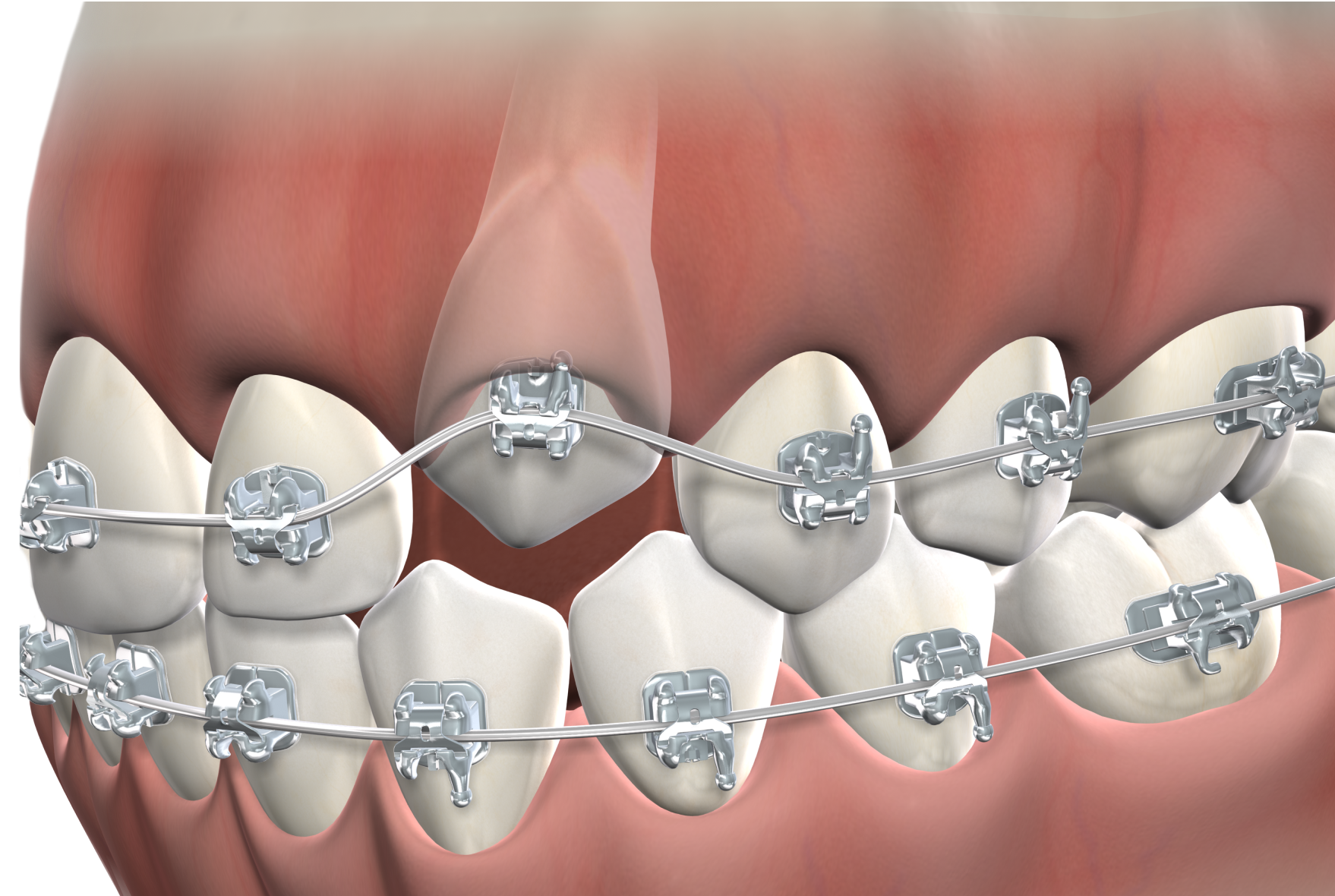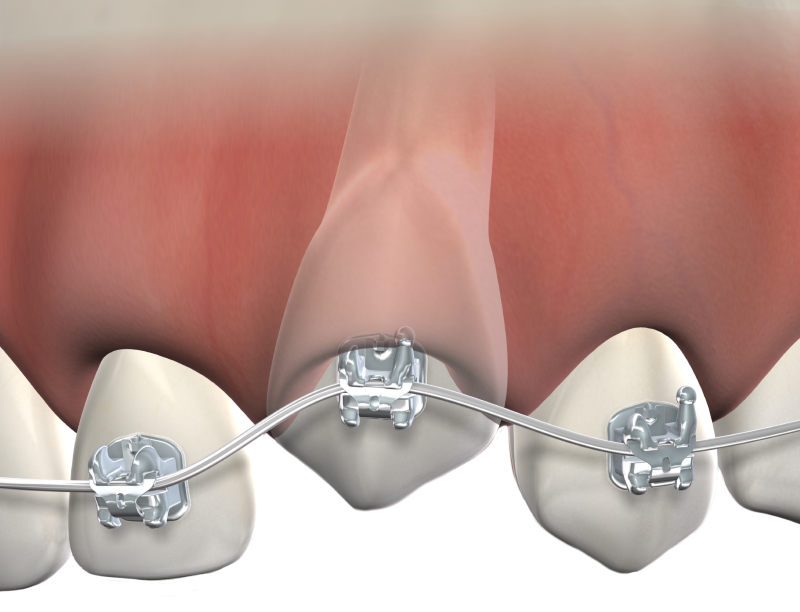Bring Impacted Teeth into the Dental Arch Safely
A tooth is said to be impacted when it gets stuck beneath the gum tissue or only partially emerges into the mouth. Wisdom teeth and canine teeth are the most commonly impacted teeth, but any tooth is susceptible to impaction. While wisdom teeth are generally removed, an impacted canine tooth requires surgical intervention to help it erupt into its proper position.A tooth may become impacted for a variety of reasons, including:
- Dental crowding
- Lack of teeth
- Extra teeth
- Growths or tumors
The presence of swollen gum tissue, tenderness, redness, or drainage in the area around the tooth may indicate impaction. Your dentist or orthodontist can recognize the presence of an impacted tooth and may refer you to an oral surgeon for evaluation and treatment. An impacted tooth can be confirmed with an X-ray or other imaging.
Exposure and Bonding
One of the most common treatments for impacted canine teeth is a procedure called exposure and bonding. This treatment requires an orthodontist to first prepare the mouth with braces to make room for the impacted tooth to come in and an oral surgeon to surgically expose the tooth. Once exposed, the surgeon will bond an orthodontic bracket with a small chain to the tooth. The orthodontist will use the chain to gently guide the tooth into alignment.
Anesthesia will be administered for the surgical part of this treatment. Oral surgeons receive additional training to be qualified in the safe administration of anesthesia, and the doctors at Michigan Oral Surgeons offer several types of anesthesia and sedation to ensure you are comfortable.
Types of Anesthesia
There are three main types of anesthesia that we use at our practice:
Hear From Impacted Tooth Exposure Patients
These patients can tell you about the firsthand experience undergoing impacted tooth exposure at our office.
We’re Here to Help
Have questions about impacted tooth exposure? Want to schedule a consultation? Let us know by giving us a call or contacting us online.





